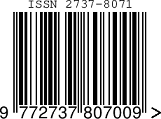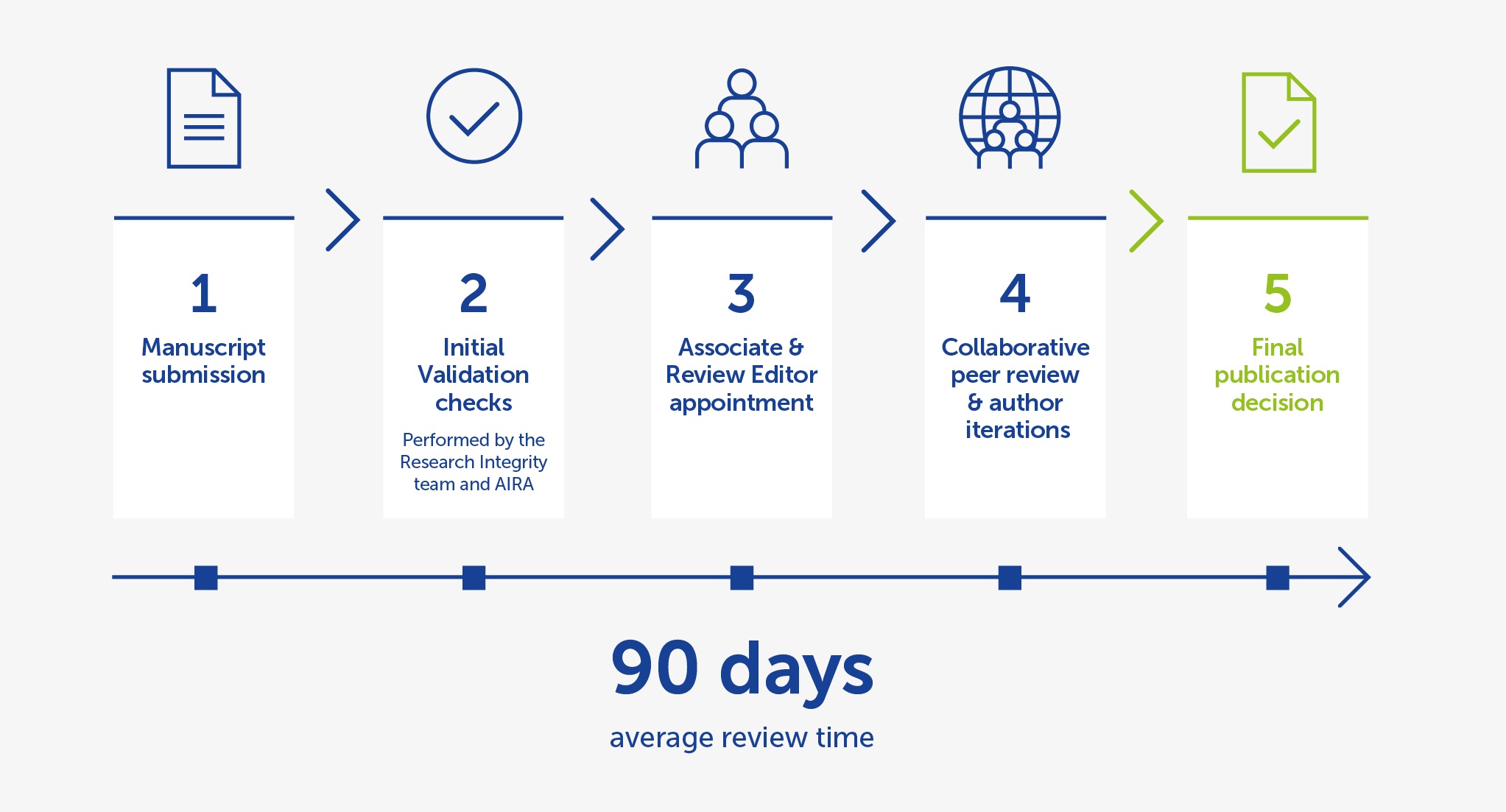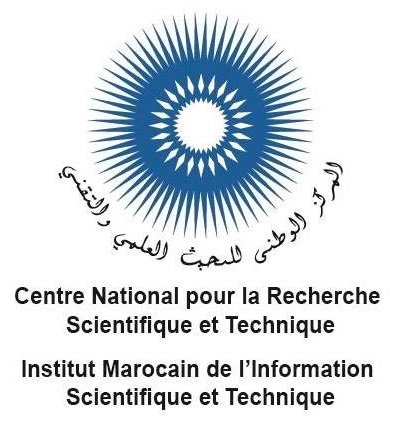
About the Journal
All articles in the International Journal of Engineering and Applied Physics will be processed by the editor through the Online Journal System (OJS), and the author can monitor the entire process in the member's area. The articles published in The International Journal of Engineering and Applied Physics, soft copy form are available as open access for educational, research, and library purposes, and beyond that purpose, the editorial board of The International Journal of Engineering and Applied Physics is not responsible for copyright infringement.
OPEN ACCESS POLICY
The International Journal of Engineering and Applied Physics (IJEAP) is available online at no cost to authors and readers. Authors retain copyright without restrictions, and readers are free to copy, display, distribute, and adapt an article, as long as the work is attributed to the author(s). Read more about our Creative Commons license at Attribution 4.0 International (CC BY 4.0).
ARCHIEVING
The International Journal of Engineering and Applied Physics (IJEAP) backup and preservation of access to the content of its journals via PKP Preservation Network (PKP PN).
PKP has developed the PKP Preservation Network (PKP PN) to digitally preserve OJS journals. The LOCKSS program offers decentralized and distributed preservation, seamless perpetual access, and preservation of the authentic original version of the content. The PKP PN ensures that journals that are not part of any other digital preservation service (such as CLOCKSS or Portico) can be preserved for long-term access. For additional details about the PKP PN, Please kindly see the high-level overview . This journal also applies LOCKSS and CLOKSS archiving.


COPYRIGHT NOTICE
The author retains unrestricted copyrights and all publishing rights.
Authors can deposit all versions of their paper in an institutional or subject repository.
- Preprint
- Author’s Accepted Manuscript
- Published article (Version of Record)
The Journal allows Author(s) to deposit all versions of their paper in an institutional repository and non-commercial subject-based repositories, such as PubMed Central, Europe PMC, arXiv and other repositories, or to publish it on Author's personal website and departmental website (including social networking sites, such as ResearchGate, Academia.edu, etc.).
PEER REVIEW PROCESS
Peer-reviewing process is conducted according to the COPE Ethical Guidelines for Peer- Reviewers.
Manuscripts submitted to IJEAP are initially evaluated for their relevance to the scope of the journal and for the quality of writing. Submissions sent for full blind review are read by up to three reviewers. The review process typically takes 1-2 months, but may take longer for manuscripts of more than 10,000 words or if reviewers with specialised expertise are required. Those interested in reviewing for the journal should register at https://ijeap.org/ijeap/user/register, providing 3-5 keywords describing their areas of interest and their methodological and substantive expertise. Once the four stages of the review process are complete, the article will be sent to the reviewer by the editor to begin the peer review process, which is conducted by up to three reviewers using the Double-Blind Peer Review method. The reviewer can give his recommendation such as:
- Accept Submission: the article is accepted to be published without having revision in substances.
- Revision Required: the article with minor revision, the article is sent to the Author to be revised (when the Author has sent the revision, the article can be accepted to be published)
- Resubmit for Review: the article with major revision. After revision is done by the Author, the article is resubmitted to the reviewer to be reviewed again ( maximum of three times resubmit), If the article is not quite right in substance after the fourth review, the reviewer is allowed to give a recommendation as Decline Submission.
- Resubmit Elsewhere: in substance, the article is considered as less suitable and suggested to be submitted to other journals.
- Decline Submission: the article is rejected by the reviewer(considered less suitable to be published in the journal).
ARTICLE PROCESSING TIME
The pre-review process takes about 12 week
The author has 2 weeks to revise the article in the pre-review stage, or the submitted paper will be rejected.
The article processing steps can be seen in the image below.

LOA (LETTER OF ACCEPTANCE)
LOA on The International Journal of Engineering and Applied Physics will be sent through the Author's email when the article has been accepted to be published.
PUBLICATION ETHICS AND MALPRACTICE STATEMENT
These guidelines are fully suitable with the COPE Principles of Transparency and Best Practice Guidelines and the COPE Code of Conduct. For more details can be seen in the following link: https://publicationethics.org
Section A: Publication and authorship
- All submitted papers are subject to strict peer-review process by at least two international reviewers that are experts in the area of the particular paper.
- Review process are blind peer review.
- The factors that are taken into account in review are relevance, soundness, significance, originality, readability and language.
- The possible decisions include acceptance, acceptance with revisions, or rejection.
- If authors are encouraged to revise and resubmit a submission, there is no guarantee that the revised submission will be accepted.
- Rejected articles will not be re-reviewed.
- The paper acceptance is constrained by such legal requirements as shall then be in force regarding libel, copyright infringement, and plagiarism.
- No research can be included in more than one publication.
Section B: Authors responsibilities
- Authors must certify that their manuscripts are their original work.
- Authors must certify that the manuscript has not previously been published elsewhere.
- Authors must certify that the manuscript is not currently being considered for publication elsewhere.
- Authors must participate in the peer review process.
- Authors are obliged to provide retractions or corrections of mistakes.
- All Authors mentioned in the paper must have significantly contributed to the research.
- Authors must state that all data in the paper are real and authentic.
- Authors must notify the Editors of any conflicts of interest.
- Authors must identify all sources used in the creation of their manuscript.
- Authors must report any errors they discover in their published paper to the Editors.
Section C: Reviewers responsibilities
- Reviewers should keep all information regarding papers confidential and treat them as privileged information.
- Reviews should be conducted objectively, with no personal criticism of the author
- Reviewers should express their views clearly with supporting arguments
- Reviewers should identify relevant published work that has not been cited by the authors.
- Reviewers should also call to the Editor in Chief's attention any substantial similarity or overlap between the manuscript under consideration and any other published paper of which they have personal knowledge.
- Reviewers should not review manuscripts in which they have conflicts of interest resulting from competitive, collaborative, or other relationships or connections with any of the authors, companies, or institutions connected to the papers.
Section D: Editors responsibilities
- Editors have complete responsibility and authority to reject/accept an article.
- Editors are responsible for the contents and overall quality of the publication.
- Editors should always consider the needs of the authors and the readers when attempting to improve the publication.
- Editors should guarantee the quality of the papers and the integrity of the academic record.
- Editors should publish errata pages or make corrections when needed.
- Editors should have a clear picture of research funding sources.
- Editors should base their decisions solely on the paper's importance, originality, clarity, and relevance to the publication's scope.
- Editors should not reverse their decisions nor overturn the ones of previous editors without serious reason.
- Editors should preserve the anonymity of reviewers.
- Editors should ensure that all research material they publish conforms to internationally accepted ethical guidelines.
- Editors should only accept a paper when reasonably certain.
- Editors should act if they suspect misconduct, whether a paper is published or unpublished, and make all reasonable attempts to persist in obtaining a resolution to the problem.
- Editors should not reject papers based on suspicions, they should have proof of misconduct.
- Editors should not allow any conflicts of interest between staff, authors, reviewers, and board members.
Policy of Plagiarism Detection
The peer-review process is at the heart of scientific publishing. As part of IJEAP commitment to protecting the integrity of the scholarly record, IJEAP feels a strong obligation to support the scientific community in all aspects of research and publishing ethics. All submitted manuscripts must be free from plagiarism contents. All authors are suggested to use plagiarism detection software to do the similarity checking before submitting their manuscript to the journal (please use iThenticate or Turnitin to check the similarity). Editors will also check the similarity of manuscripts in this journal by using iThenticate software. The manuscript will instantly be rejected if there is a plagiarism indicated or detected.
Final camera ready also will be checked again for similarity rate. The overall similarity rate of a manuscript should not exceed 25 %, and the similarity rate to a single source should not exceed 15%.
Advertising Policy
International Journal of Engineering and Applied Physics (IJEAP) does not endorse any product or service marked as an advertisement or promoted by a sponsor in publications.
Editorial content is not compromised by commercial or financial interests, or by any specific arrangements with advertising clients or sponsors.
The editorial board of the journal does not accept for consideration and does not print advertising articles (both on a reimbursable and free basis).
Authors of the scientific articles cannot link to ads using keywords.
Repository Policy
Author Self-Archiving Policy
As IJEAP is an Open Access journal, authors are entitled to make their article (Submitted version, Accepted version (Author Accepted Manuscript), Published version (Version of Record) ) publicly available in institutional or other repository of their choice (Sherpa/Romeo, Dulcinea, Diadorim ...).
Re-use guidelines for open access content
When posting, distributing or reusing Open Access articles, the journal should be clearly attributed as the original place of publication and correct citation details should be given. Authors should also deposit the URL/DOI of their published article in any repository, in addition to the Version of Record.
When making their article available according to the terms of their Open Access licence, we strongly encourage authors to deposit the Version of Record. This will guarantee that the definitive version is readily available to those accessing your article from such repositories and means that your article is more likely to be cited correctly.
Complaint Policy
The The International Journal of Engineering and Applied Physics authors have the right to appeal against a rejection decision made on their manuscript. In order for their formal appeal to be considered, authors should submit a solid, scientific rebuttal, or new facts/data in response to the comments made by the reviewers. All relevant information regarding the article (incl. the exchanges of correspondences, reports and names of the reviewers/editors, who have taken part in the peer review process) will be provided to a member of the Editorial Board, who may seek, if appropriate, the opinion of an additional independent expert. As with the rest of the peer review process, the confidentiality of an appeal consideration will be kept at all times. Until a final decision is made towards their appeal, authors will not be allowed to submit their manuscript to another journal for fear of breaching the ethical rule of duplicate publication to several journals.
Please address you request to: complaint[at]ijeap.org
Please note that the The International Journal of Engineering and Applied Physics will not consider appeals:
- That do not comply with the content requirement described above,
- Which contain offensive language,
- Which simply consist in an author’s rant against the reviewers,
- Which are submitted to the journal after 3 months following rejection decision.













